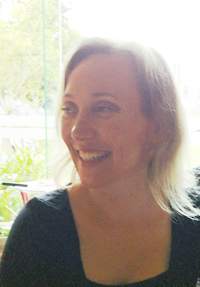By Astra Niedra
Guest Writer for Wake Up World
There’s a bit of push-and-pull going on these days between parents who adhere to ‘attachment’ parenting principles and parents who are more authoritarian in approach.
Attachment parenting is based on the principle of understanding a child’s emotional and physical needs and responding intuitively to these needs. The focus of attachment parenting is on building a strong relationship between parents and child but the phrase has come to represent parents who co-sleep, wear their babies in slings, and exclusively breastfeed. On the other side, authoritarian parents believe that children need to be trained to fit in with the parent’s lives and so ought to learn to fit family routines, to sleep independently, and so on.
I’ve naturally followed attachment parenting principles myself without initially (over thirteen years ago now) knowing about it as a movement or parenting ‘philosophy’. It just seemed instinctive to me to attempt to meet my babies’ needs, not the other way around, and I had an intense desire to become attached and to bond very deeply with my babies.
But humans are complex and varied and there are many ways to parent…
[pro_ad_display_adzone id=”110028″]
I personally believe that many of the ‘old rules’ of parenting need to be modified, because we now know that secure attachment, breast milk, physical touch and emotional connection are best for the development and wellbeing of our children. I think most parents realise this, but we also know that it is not always possible to provide these things, and we all do the best we can in each moment.
I believe that most parents would use a combination of techniques and strategies, depending on what works with each child, even depending on what works in each moment. Undoubtedly, most people have their children’s best interests at heart and will adopt the strategy they believe fits best with their own internal rule system, values and circumstances.
Then there are those people who have been raised in a non-attachment way, and who continue this tradition with their own children.
So, in the spirit of attempting to understand the complexity of this part of our human nature, I have tried to discover why so many people parent in a non-attachment way by searching within myself, for a part of my inner self that would raise their children in such a way.
Learning From The Other Side
Well I didn’t have to look far – almost immediately an image of my mother and then father formed in my mind with their voices telling me how important it was for babies to get into a routine and to learn the rules of being a socialised human being. I questioned my inner representations of my parents further and found that their ideas come from a system of beliefs (mostly religious in origin) where children are essentially ‘bad’ and that badness includes being chaotic, having no self-control, no self-discipline and being just like untrained animals from birth. There was no malice in their voice, but it had rather a businesslike and authoritarian quality.
I asked them where those beliefs originated from and they replied with: ‘That’s just how it is’. They argued that you can see it especially once babies become toddlers and they try to assert their own needs in more aggressive ways. They continued that babies need to be trained, much like pets, and imbibe the ‘proper’ social rules. If a mother attends to every cry and whimper, then she’s allowing the baby to control her and set its own rules.
Hmmmm….
I settled back into my usual self and then hooked into the more authoritarian inner voice of my parents again. For there are always underlying vulnerabilities when a person is adamant about their position on an issue. I wanted to get down to what the vulnerabilities of this mindset were — what they feared would happen if as parents, they simply bonded closely with their babies and loved them.
The fear in this case was the loss of boundary, of individuality; the loss of order and reason; a fear of permanent enmeshment; a loss of control. There was even a deep-seated fear of breaking established religious rules and teachings about the innately sinful nature of infants, and a more culturally-based fear of the loss of hierarchy within families. And on a more personal level there was also concern about losing too much sleep and consequently self-control. In its 1950s incarnation, the voice in its female form had a fear of a diminished relationship with her husband, and in its 2000s incarnation, fear of losing career opportunities, income, professional image and time to itself.
[Wow! I could go more deeply into each aspect of this generally anti-attachment voice using the Voice Dialogue technique with a facilitator, but for now this was enough.]
Interestingly, I could also sense a real sadness in the voice about how many parents no longer follow these ‘traditional’ rules, with the concern being that our civil, traditional and patriarchal society would fall apart. For me and many parents, such change of our societal structure is not unwelcome, but to someone identified with traditional rules, it can be scary.
Gifts and Limitations
When you look at conflict from a Voice Dialogue perspective, you don’t label one side as ‘right’ and the other as ‘wrong’, even if you identify mostly with one side. Both sides have some truth in them, both have gifts to offer us, and each has its limitations.
Attachment parents can easily see the limitations of the other side. But what are the limitations of our own side? Are there any gifts the other side can offer?
For a start, many mothers (and it usually still is mothers) can lose touch with themselves as individual beings when they become entirely enmeshed with their child and their child’s needs. Various symptoms can then arise, ranging from tiredness, lethargy, depression, loss of interest in previous interests/work/hobbies, over-eating, decreased sex drive and/or interest in one’s partner, irritability, and sometimes even feeling irrationally angry at their children or partner at times. Symptoms can sometimes become extreme, with some mothers feeling as if they have ceased to exist, their identity lost to their child’s needs.
Other mothers can give up all their power to the child. So the child develops a sense of absolute entitlement to have his or her needs met, at the expense of everyone else’s. Such mothers create a new set of rules for themselves where they have to attend to their child instantly no matter what is going on for themselves. This leads to children who lose respect for their mother and feel they can do anything, at any time, and that no one else matters except for them.
Being able to stay in touch with the part of yourself who can separate from your child and think of yourself will allow you to see what your own needs are as well as your child’s. That side of you will be able to think about and plan activities which interest you and are not necessarily related to your children. If you are 100% focused on your child’s needs, then you may be unable to take care of yourself.
If you sleep with your child, then it may help to at least listen to the feelings of the part of you who wants to sprawl out on the bed and toss and turn, without an underlying concern about whether you are leaving enough room for your baby or might squash them. Being able to leave your baby to sleep on its own sometimes will give you space to honour that part of you who wants to be alone, or only with your partner, or with your other children. Your baby will not suffer if she sleeps on her own sometimes…
For here’s another factor to consider: the connection with your child is more important than whether you are always physically present. A mother can be physically with her baby – even while breastfeeding – but not be connected with her baby energetically. And a mother can also be physically apart from her baby but stay connected energetically. So you can put your baby down to sleep as often as is comfortable for you both, yet create a conscious connection between the two of you as you leave the room. You can also decrease the strength of the connection as you become involved in other things but keep a kind of invisible link between you. Many mothers do this naturally and unconsciously anyway, and it is how we ‘know’ when our baby needs us. We have remained connected to our baby and we sense their needs – even when we are physically apart.
It is the connection between parent and child which I believe is the main gift of attachment parenting. Being close and focused on your child’s needs naturally leads to a closer connection, and that is something many non-attachment parents and their children may miss out on. But if, in your journey of attachment parenting, you find you begin to experience any physical or psychological symptoms which indicate you have become too attached, or too enmeshed, then you can bring intention to your process and still consciously maintain your connection with your children. The beauty of this is that you then remain open to the gifts that other parenting styles may offer, such as a little objectivity regarding whether a child’s need is a want or a need (or something in between), and have more inner resources available to you to make a more conscious choice in how you respond.
You can still wholeheartedly follow attachment parenting principles, but do make it a conscious choice. As with any total identification with only one side of a story, there is no consciousness if it is done without consideration, and so there is often underlying conflict which is then reflected in the external conflicts in our lives. A conscious decision involves seeing the other side too, empathising with its concerns as well as seeing its limitations, and then making your choices with both sides coming along for the ride. You may never know when you need to draw on the powers of an opposite aspect of what you have chosen to become!
For practical ways to tune into your special connection with your children, check out my recent article Connecting with Your Child (or Anyone Else For That Matter).
For more information:
Take a look at my book Enlightenment Through Motherhood for a down to earth and humourous look at how parents can grow and develop and become better at connecting with their children by actually dealing with the day-to-day challenges of parenting. It also gives you a crash course on Eastern spirituality, explaining chakras, chanting, meditation and so on, and shows you how to get the benefits of such practices through daily family life.
About the author:
 Based in Sydney, Australia, Astra Niedra is a writer and founder of babydialogue.blogspot.com.au, a website dedicated to conscious parenting and conscious relationships. A respected teacher of the relationship and consciousness work Voice Dialogue, Astra offers simple and insightful ways to understand and work within relationships (including the parent child/relationship) that honour each person for who they are, while enabling true freedom for transformation.
Based in Sydney, Australia, Astra Niedra is a writer and founder of babydialogue.blogspot.com.au, a website dedicated to conscious parenting and conscious relationships. A respected teacher of the relationship and consciousness work Voice Dialogue, Astra offers simple and insightful ways to understand and work within relationships (including the parent child/relationship) that honour each person for who they are, while enabling true freedom for transformation.
Astra is also the author of five books: [1] The Perfect Relationship, [2] Which Self Are You?, [3] The Greatest Relationship Secret, [4] 3 Instant Relationship Fixes and [5] Enlightenment Through Motherhood, all available on Amazon.
You can connect with Astra at:
- Facebook/AstraNiedra,
- Twitter/AstraNiedra
- YouTube/Astra Niedra
- Google/+AstraNiedraDailyVoiceDialogue.
[pro_ad_display_adzone id=”110027″]







